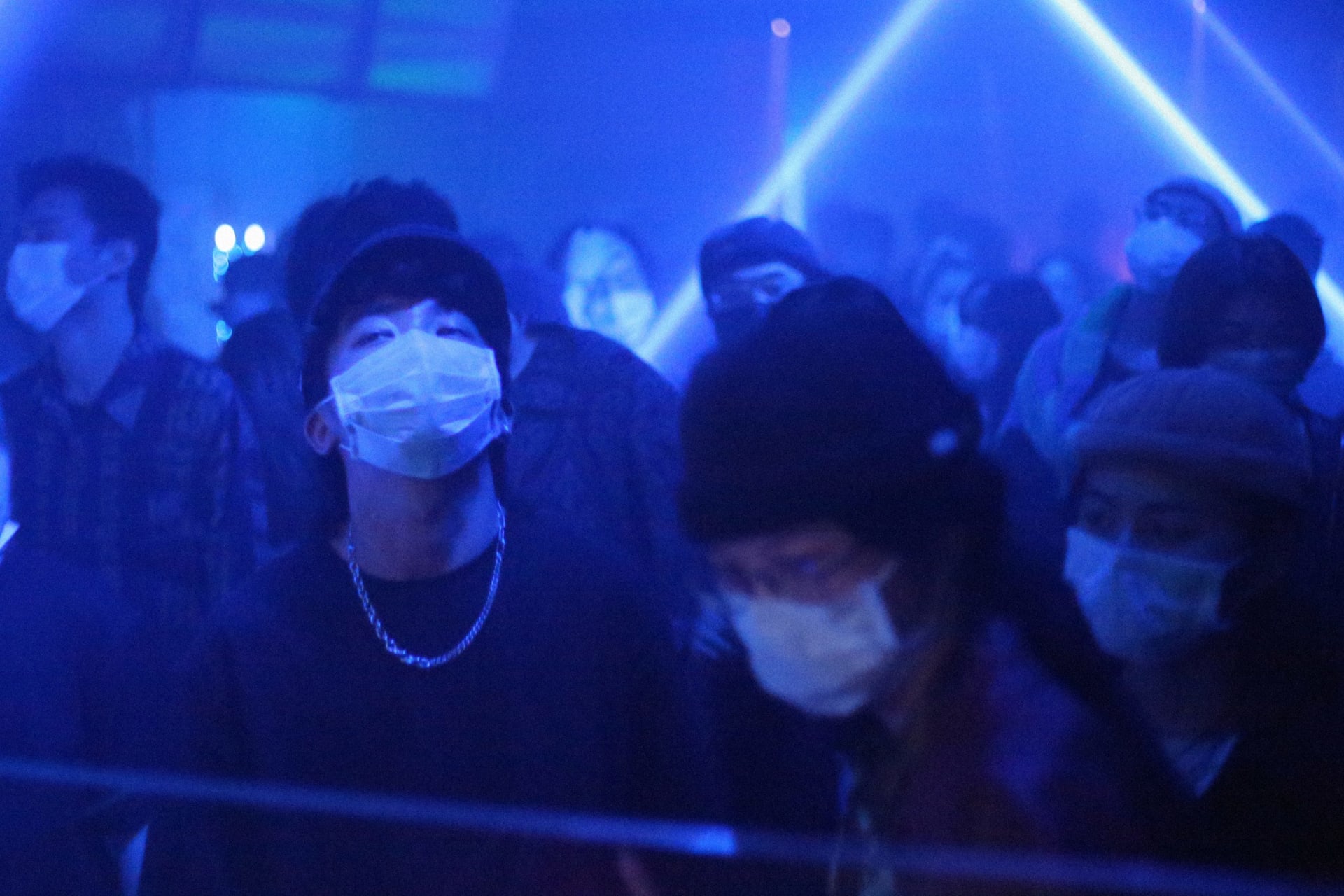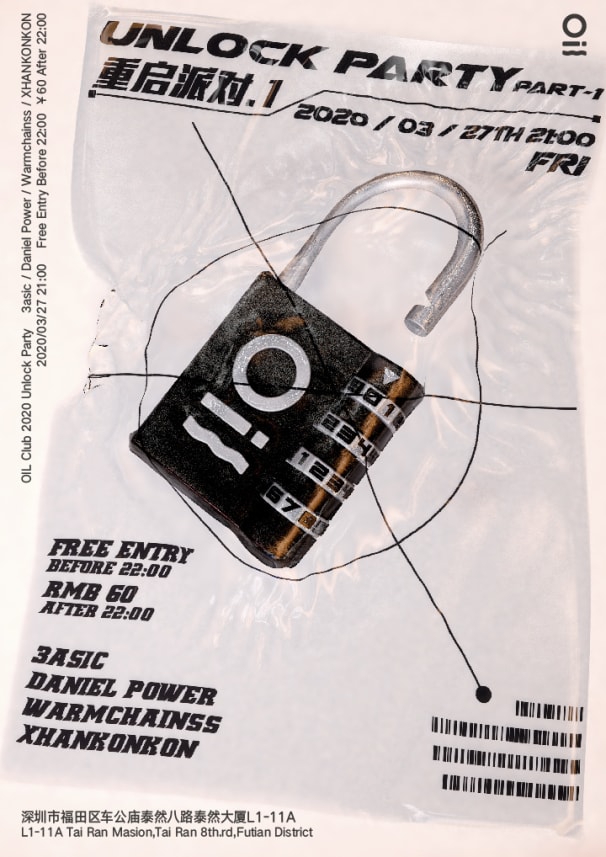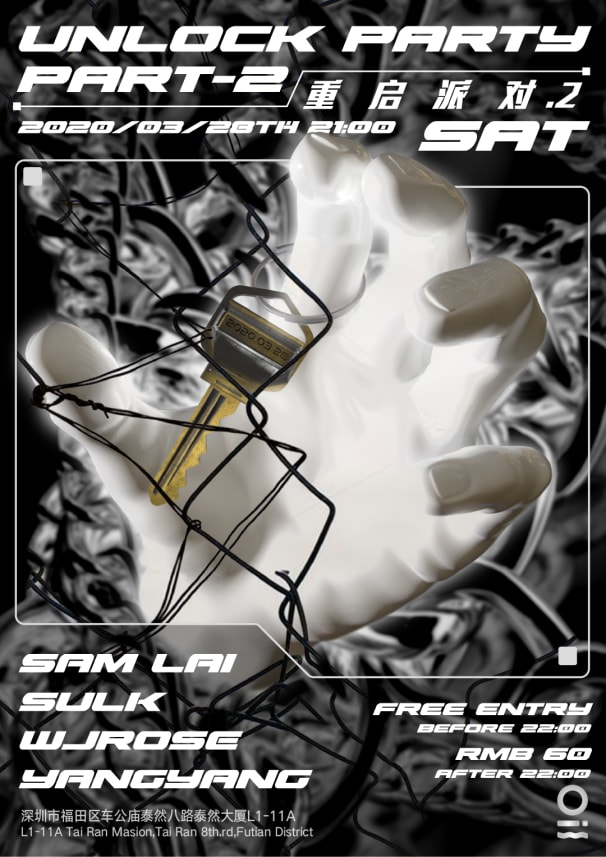

The Reality of Post-Lockdown Clubbing in China
After several months, the country's dancefloors have finally reopened. What can this change teach us about the clubbing community in the aftermath of COVID-19?
With most of the world practicing social distancing, many of us harbor fantasies about our first post-pandemic raves. We’re up all night celebrating our new liberation, experiencing a 21st century version of the Second Summer of Love. A glance towards China, however, reveals a more subdued return. Starting in March, select clubs across the country have slowly recommenced their operations after a period of enforced lockdowns.
“The last few weeks have been pretty odd,” says Gaz Williams, the Shanghai-based founder of Shelter, a groundbreaking venue for underground music in the city, which ran until 2016, and SVBKVLT, the seminal Chinese label he launched in 2013. He’s since gone on to run ALL club, currently the city’s main hub for adventurous dance scenes. With each passing weekend, Williams reports it’s the “busiest night since [reopening]” on March 13th, but the increase is slow, and attendance remains lower than prior to the government-enforced shut down. What has also shifted are the times that people go out; attendees generally arrive and leave the club earlier. Williams reports that clubs have only reached their usual closing time of 5am twice since reopening.
“This [hesitation to go out] is slowly going away,” he says. “Most nights, I’ve met someone who has told me it’s their first night out since lockdown, and a couple of people still wear masks in the club. But, in the last few weeks, people have definitely seemed more relaxed and have been drinking and partying like usual.” One recent highlight he mentions was the release party for SVBKVLT affiliate Osheyack’s new EP on April 24th, featuring local artists Alex Wang, Hyph11E, and Scintii. “It was the first night it really felt like the club was ‘back,’” Williams recalls. “The crowd was really up for it, people were getting drunk, smoke and strobes were on. It felt almost normal.”


Normal, it seems, is still a long way off. Clubs in China have now implemented temperatures at the door as a mandatory preventative measure. Williams also says that the staff at ALL have been told that the venue shouldn’t be “too busy”, though the police never specified the maximum number of clubgoers per event and, so far, most nights have been modestly attended. Before the lockdown, underground clubs like ALL were mostly able to bypass the watchful gaze of the local authorities. Nowadays, it seems that clubs in China are operating under more precarious conditions than ever before. “The first few [post-lockdown club nights] just had a few DJs [playing] and free or very low entry prices,” says Kim Laughton, a 3D artist and designer who resides in Shanghai and has worked with PC Music, Fade To Mind, and Mechatok—to name a few. “At the beginning, even though it was quite safe, people didn’t want to come out. I guess it takes a while for people to feel comfortable after having all this stress.” And this makes sense, considering the aftereffects of isolation on the human psyche; a recent report by CNBC notes that after the SARS outbreak in 2003, “both healthcare workers and people who were self-quarantined exhibited symptoms of post-traumatic stress disorder (PTSD).”
But now, Laughton says “numbers are gently getting back to what they were [before the lockdown].” Last weekend, he says, there were 200 people at ALL Club, which would be a good number even before the pandemic started. Laughton, who was also responsible for visuals and interior design for both ALL and OIL Club in Shenzhen, admits that, “the first time you go out, it’s amazing because you’ve been stuck inside for months.” City life in China has quickly returned back to it’s normal pace. Although, “it almost feels weird,” Laughton observes, “the fact that this thing is going on in the rest of the world.”
Compared to the progress China has made in limiting the outbreak, countries in the western world still have a long way to go. This is due, in part, to the country’s more stringent measures, such as a “closed-off management” strategy, wherein entrances and exits in 13,000 residential districts were strictly controlled, with mandatory health registrations and temperature checks. The reasons why China was able to halt its rise of cases between February and March are complex, but such exacting restrictions over its citizen’s movements have allowed the country to open up businesses earlier than those in Europe and North America. The timeline for clubs and venues reopening in these continents hold almost no comparison. In a recent New York Times roundtable Zeke Emanuel, director of the Healthcare Transformation Institute at the University of Pennsylvania, claimed that larger gatherings such as concerts and festivals in the United States “might not return until fall 2021 at the earliest.”







The relief that comes with China’s relaxed restrictions, however, is countered by the struggles its clubs are currently facing. Financially speaking, “we’ve reached the hardest time,” says Huiyuan Sun, who runs OIL in Shenzhen with his partner Yangyang Song. Over the last few years, OIL has built a reputation for its stellar bookings pairing local talent with heavyweights from the global electronic music community. Earlier this year alone, the club hosted international artists like British DJs Ben UFO and Perc, Sweden’s Varg, Photonz from Portugal, and Miley Serious from France. All of that came to a sudden halt at the end of January, with a strict two month-long lockdown in Shenzhen. “In January, our bookings for this year had already been planned out until summer.” The pandemic, of course, forced the team at OIL to cancel all international bookings, including some that had been in the works for months.
Despite the cancellations, their team kept innovating, launching a new community radio initiative called FAR Radio, which they had wanted to do since initially opening OIL. Working on FAR Radio, Sun says, has tightened their ties with local DJs, reporting that in one of the first FAR Radio broadcasts, he witnessed artists displaying a greater willingness “to take [more musical] risks, playing more diverse, forward-thinking music, which made us feel really happy.”
Meanwhile in Hangzhou, Yifei Shu, a booker at Loopy club, also contended with cancellations of exciting international bookings such as Mama Snake, DEBONAIR, Russell E.L. Butler, Dasha Redkina, Mina, and Tash LC. Despite these setbacks and the club’s temporary closure that followed, running costs remained, putting an economic strain on the venue and its staff. “Fortunately, Loopy reopened but I’ve heard some other clubs and bars are closing down and will never reopen,” he says. Loopy, like ALL and OIL, has also struggled with slower nights than usual, but Shu says there was one great party recently with roughly 300 people in attendance— a considerable increase from their regular numbers ranging from 40 to 60 clubgoers. However, “everyone had to [have their temperature checked] and show their green official pass code at the entrance,” says Shu. Compared to nights before lockdown, the surrounding police presence has doubled. Like many who are imagining what a post-lockdown clubbing landscape could look like, Shu shares the sentiment that the current moment “is a good chance for local artists, DJs, and local scenes.” He says, “I just hope Loopy can stay open and we can [host] more new faces and artists and DJs after everything goes back to normal.”
In order to overcome the effects of the Corona crisis, the club scene in China has also begun to band together. ALL recently announced on WeChat that the club was given an ultimatum by their investors–either come up with a large amount of money by the end of May or face closure. Unlike in places like Berlin, where emergency funds for private businesses will enable some clubs to recover from the financial losses due to the period of closure, Chinese clubs are left to their own devices. Without support from the government, the community has stepped in to help instead. “Everyone has been coming together to put on events, find funding, come up with ideas to raise some money, and the public response today has been quite staggering,” says Williams. “Everyone is having a hard time right now, but it feels like it’s bringing the scene closer together and everyone is looking out for each other and trying to help.”
Gaz Williams reports that plans for club exchanges in May are already in the works, with another club in Shanghai, Elevator, and OIL, as well as a local market for local designers and artists to sell their work. “Our close friend Alvin Li is curating a two day video installation exhibition, and all our regular crews and promoters are going all out on their events,” Williams says, continuing, “I’m not sure if optimism is the right word for the vibe right now. Things are tough, and it isn’t really clear when that will change, but there is definitely a feeling of determination to get things going again.”
Caroline Whiteley is an Editor at Electronic Beats. Follow her on Instagram.
Published May 07, 2020. Words by Caroline Whiteley, photos by OIL Club Shenzhen.






Follow @electronicbeats